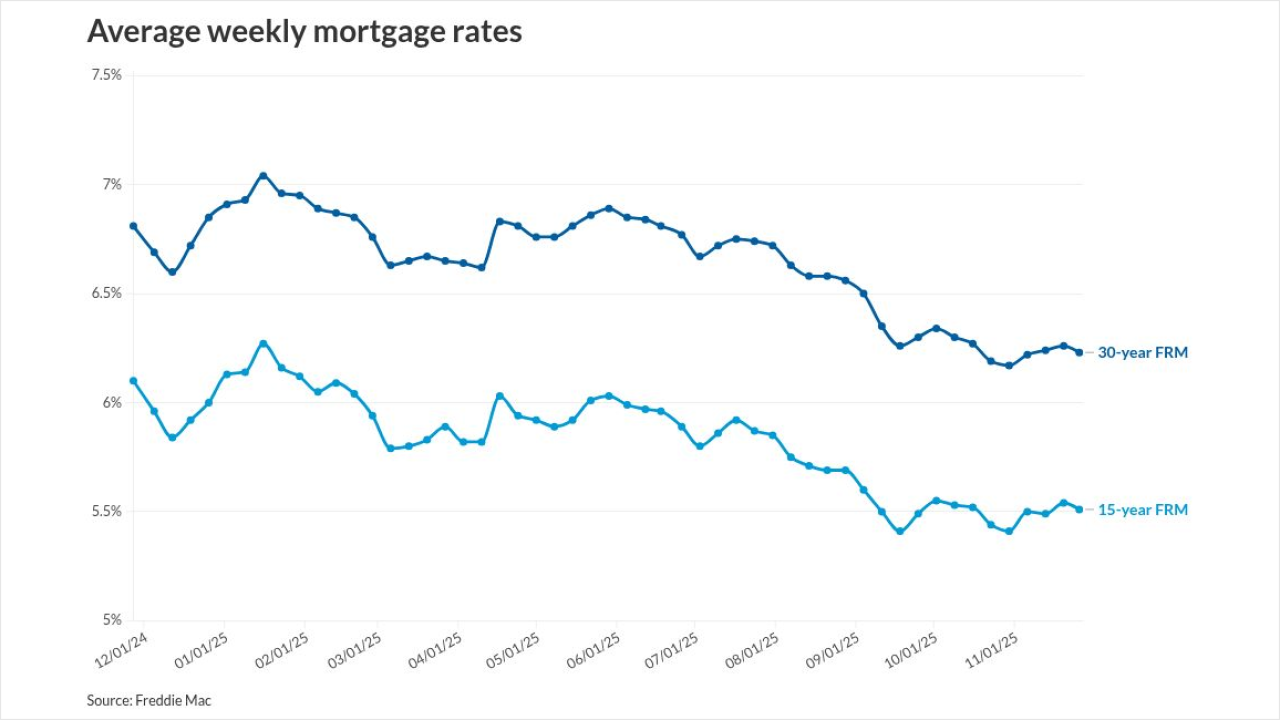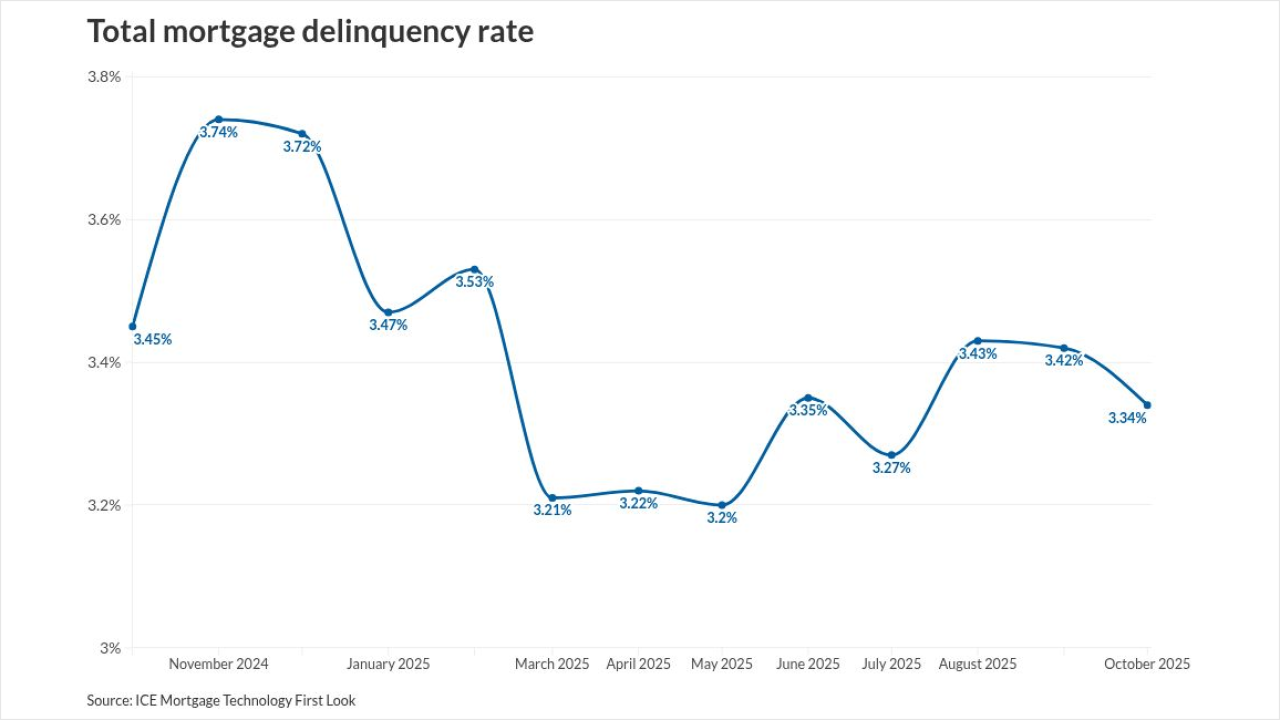Santander Consumer, Flagship Credit Acceptance and Credit Acceptance Corp. are marketing a total of $1.9 billion of bonds backed by subprime auto loans this week, according to rating agency presale reports.
The three deals add to a bulging pipeline of $3.4 billion in non-prime auto loan asset-backed deals so far in 2018, an indicating of unwavering demand for the risky but high-yielding asset class that had $24.7 billion in publicly rated bond issuance last year.
Drive Auto Receivables Trust 2018-1
Santander Consumer USA continues to reduce risk factors of its platform housing its riskiest originations.
The $1.16 billion Drive Auto Receivables Trust (DRIVE) 2018-1 includes higher overcollateralization and the highest-ever weighted average borrower FICO of 572 than any of its 13 prior deals on the platform. It’s also cut back on bottom-feeding: Loans with sub-550 FICO scores are just 35% of the pool, compared with historical ranges of 38%-48%.
The trust will issue $938 million in notes, including a $155 million A1 money market tranche and three term tranches rated triple-A rated by S&P Global Rating and Moody's Investors Service: the Class A-2 notes are sized at $174.3 million to be split among two-year fixed- and floating-rate series; and $86.05 million of three-year Class A-3 notes.
There are also $133.6 million of Class B notes rated AA (S&P) and Aa1 (Moody’s); $168.5 million of Class C notes rated A/Aa3; $162.6 million of Class D notes rated BBB/Baa2; and $58.08 million in Class E notes is rated BB+ by S&P alone. Moody’s did not issue ratings on the most subordinate tranche.

Santander is providing a $223.6 million collateral cushion on the transaction, or 19.25%, up from 18.7% from last October’s transaction. That has allowed a slightly decreased credit enhancement level of 65.25% on 2018-1 (a decline of 5 basis points from 2017-3).
Moody’s has an expected cumulative net loss of 26% on the asset pool, 1 percentage point lower than its forecast for DRIVE 2017-3. Losses for existing DRIVE transactions are between 24% and 27%. S&P expects CNL of between 26.5% and 27.5%, down from 27% to 28% in 2017-3.
Santander currently services $24.7 billion in its managed portfolio of subprime loans, a slight decline from 2016 levels as the Banco Santander affiliate cut back on originations, a decision
The lender also markets non-prime auto-loan ABS portfolios through its
Credit Acceptance Auto Loan Trust 2018-1
The $625.1 million transaction is the 23rd overall issuance from the Credit Acceptance Corp. trust, and includes $500 million in bonds backed by CAC’s unique collateral mix of dealer advances and loan purchases.
CAC is providing 49.9% initial credit enhancement on the $323 million Class A senior loans, which carry preliminary triple-A ratings from S&P and Moody’s. The $101.6 million in Class B notes are rated AA/Aa1 (S&P/Moody’s), while the $75.4 million Class C tranche carries A/Aa3 ratings.
Credit enhancement levels on the Class A notes are up slightly to 49.93% from the CAC’s third ABS offering in 2017.
CAC, which Moody’s notes is fairly viewed as a “lender of last resort,” as it primarily advances loans made through franchised as well as “buy-here, pay-here” self-financed dealers (70% of the initial pool). Rather than purchase most of the loans, CAC instead services the consumer notes for up to a 20% fee of collected notes, and the dealer’s 80% advancement is repaid through consumer collection receivables to CAC.
Dealers receive a holdback fee from CAC after the advance is fully repaid.
The CAALT 2018-1 transaction presents risks because of the weak quality of CAC’s borrowers (average FICO of 548) and a two-year revolving period that has few collateral concentration limits; but Moody’s says the triple-A-rated deal benefits from unique performance triggers and full-turbo amortization features that protect investors.
The 1,500 dealer advances in the pool increased to $437.5 million from $309.5 million in CAC’s prior deal, but was relatively unchanged from net book value of the pool to 70% from 71%.
Moody’s has an expected loss on the portfolio of 27%, the highest of any ABS deal the rating agency rates. S&P has a CNL range of 19.75%-20.25% assigned to the deal.
Flagship Credit Auto Trust 2018-1
Flagship Credit Acceptance’s first deal of 2018, FCAT 2018-1, is its smallest in years at $200 million, as the Chadd Ford, Pa.-based company remains in retreat on origination levels as its stakes out plans to return to profitability.
Five classes of notes will be issued, including $122.8 million of senior Class A notes that benefit from 42.01% credit enhancement. The bonds are backed by $121.7 million in subprime loans, issued through both Flagship’s direct dealer and indirect online lending arm (Carfinance.com). The deal includes a prefunding feature allowing Flagship to purchase and securitize additional loans into the pool through April 30.
Flagship is pulling back on originations after sustained a $27.3 million loss in 2016. The company has tightened underwriting, but the lower volumes and rates will likely have it reporting a full-year net loss in 2017 before returning to profitability this year, reports Kroll Bond Rating Agency.
DBRS has estimated a base-case CNL of 12.15% on the deal, while KBRA projects a range of 11.85% to 12.85%, slightly above that of Flagship’s fourth deal in 2017 (11.4% to 12.4%).
The average monthly terms of 70.7 months, LTVs of 122.7%, and average borrower FICO of 592 (excluding zero-FICO loans) is similar to most recent FCAT transactions. Used vehicles make up 70.9% of the pool, the highest among the four previous securitizations by Flagship, which is owned by affiliates of Perella Weinberg Partners.
Indirect dealer loans make up 79.1% of the pool.





